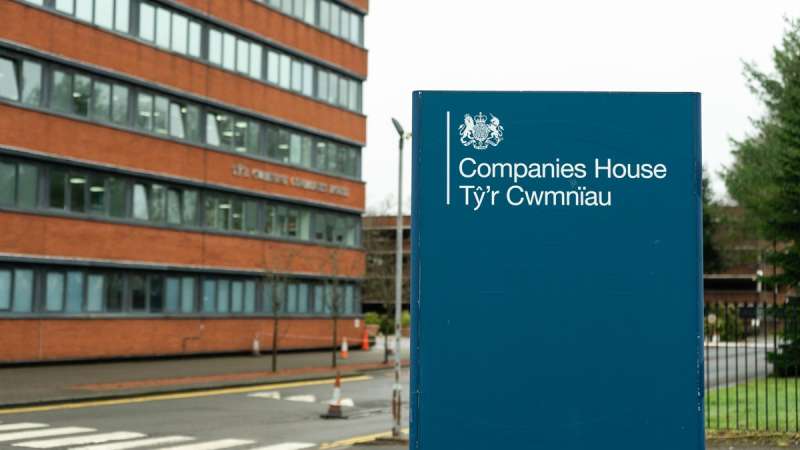Our Approach to Shareholders Agreements
We provide a creative and can-do shareholders’ agreement advisory service. We guide you on the legal and commercial arrangements you need to consider for your shareholders’ agreement, and then we prepare and finalise the completion of your shareholder agreement, new articles of association and (if appropriate) cross-option agreement.
When necessary, we draw on the expertise of our Commercial Property, Employment, Commercial, Dispute Resolution and Private Client teams.
We provide clear advice to ensure you understand the complete process and efficiently prepare a shareholders’ agreement, new articles and association and (if appropriate) a cross option, each tailored to your specific needs.
We will provide clear and transparent costs quoted at the outset and undertake all work for you according to our Promise.
Why Work With Our Corporate Lawyers?
- We have been ranked as a Top Tier law firm by the Legal 500 for the last seven years.
- You will receive city-quality corporate law advice at regional prices.
- Price transparency - we provide our clients with an estimate at the outset of any piece of work with ongoing updates throughout the matter.
- Our 5 Corporate Partner led service ensures you receive the very best legal advice and commercially minded support.
- We have a large team with experience across a diverse variety of sectors, focused on achieving your objectives and hitting your deadlines.
- We are a full-service law firm operating from a one-site office, which means our teams communicate effectively and efficiently and our Corporate Lawyers can draw on support from other specialist lawyers such as property and employment lawyers.
- Our Corporate Solicitors use the latest technology to ensure that we are working as efficiently as possible and that geographical distance is no bar to us from providing you excellent client service.
- We were the winners of ‘Corporate Team of the Year 2021’ at the Manchester Legal Awards.
- Take a look at the Myerson Promise for further benefits of working with us here.
FAQs
What is a Shareholders’ Agreement?
A shareholders’ agreement is an agreement between all the shareholders of a company.
It is an essential and integral document to any shareholder relationship, which allows shareholders to regulate their relationship with each other, the company and its directors.
It provides clarity and direction for all by setting out the framework for how the company will be governed and operated. It also helps to mitigate costly and potentially damaging shareholder disputes, should they arise in the future.
Whilst a company’s standard constitution and the Companies Act 2006 provide some protection for shareholders, it is very limited, and relying on it alone could have a random or unpredictable outcome.
Similarly, Table A of the Companies Act 1985 and the Model Articles within the Companies Act 2006 import default provisions; however, not all of these provisions will be suitable and compatible with the owners’ wishes.
For example, standard articles do not permit a compulsory transfer of shares held by a shareholder if such shareholder breaches a shareholders’ agreement or the articles of association.
Who Should Enter into a Shareholders’ Agreement?
The circumstances in which you may need to consider a shareholders’ agreement with your fellow shareholders are:
- If your company has two or more shareholders;
- If you are setting up a new company or starting a new business with others;
- If you are buying a company with others in a new company, whether as part of an MBI, MBO or otherwise.
- If you are acquiring or subscribing for shares as an investment in an existing private trading company (whether new shares or from another shareholder); or
- If you are selling or transferring shares to others in your company whilst retaining a shareholding.
- A shareholders’ agreement will ensure that your investment, interest and, where appropriate, control of your business is protected, and the business can be run transparently and profitably.
Whilst a company’s standard constitution and the Companies Act 2006 provide some protection for shareholders, it is very limited, and relying on it alone could have a random or unpredictable outcome. Similarly, Table A of the Companies Act 1985 and the Model Articles within the Companies Act 2006 import default provisions; however, not all of these provisions will be suitable or compatible with the owners’ wishes.
Even if you have already established your business, there is still time to put the necessary protections in place to ensure that shareholders are protected in the future. You can look to enter into a suitable shareholders’ agreement and articles of association at any time.
It is also important to review such arrangements regularly (especially when shareholdings are varied) to ensure they remain suitable.
What Kind of Scenarios Does a Shareholders’ Agreement Regulate?
Below are several scenario questions that can be easily addressed and answered in a shareholders’ agreement. These scenarios would potentially cause major concern and disruption to you and your business without a shareholders’ agreement.
- What happens if a shareholder wishes to sell their shares to a third party whom you do not know or trust or to someone who wishes to change the direction of your business?
- What happens if most shareholders wish to sell their shares, but a minority shareholder does not?
- What happens if the shareholders fall out or have a disagreement?
- What happens if a shareholder dies?
- What happens if a shareholder wishes to set up a competing business?
- Do you want a veto on certain decisions if you do not have day-to-day involvement in your company?
A shareholders’ agreement will provide clarity and direction for all by setting out the framework for how your company will be governed and operated and how issues or disputes such as these may be resolved.
What are Articles of Association or a Company’s “Articles”
A company’s articles of association or ‘articles’ are its constitution that regulates its internal affairs and its relationship with its officers and shareholders
Articles should be carefully prepared to reflect all provisions of a shareholders agreement, share subscription agreement and investment agreement regarding how a company will be operated.
All UK companies have articles that are publicly accessible at the Registrar of Companies.
Articles take one of three forms:
- Model Articles;
- Model Articles modified as desired; or
- Bespoke Articles.
Model articles are the default statutory articles in the Companies Act 2006. They import limited default provisions such as shareholder liability, director appointments and proceedings, share rights, and shareholder decisions. In most cases where there are two or more shareholders, they will not be suitable.
Articles should normally be extended beyond the limited default Model Articles by either amending the Model Articles or adopting bespoke Articles.
Testimonials
Meet Our Specialists
Home-grown or recruited from national, regional or City firms. Our specialists are experts in their fields and respected by their peers.
Contact Our Experts
You can contact our lawyers below if you have any more questions or want more information:






